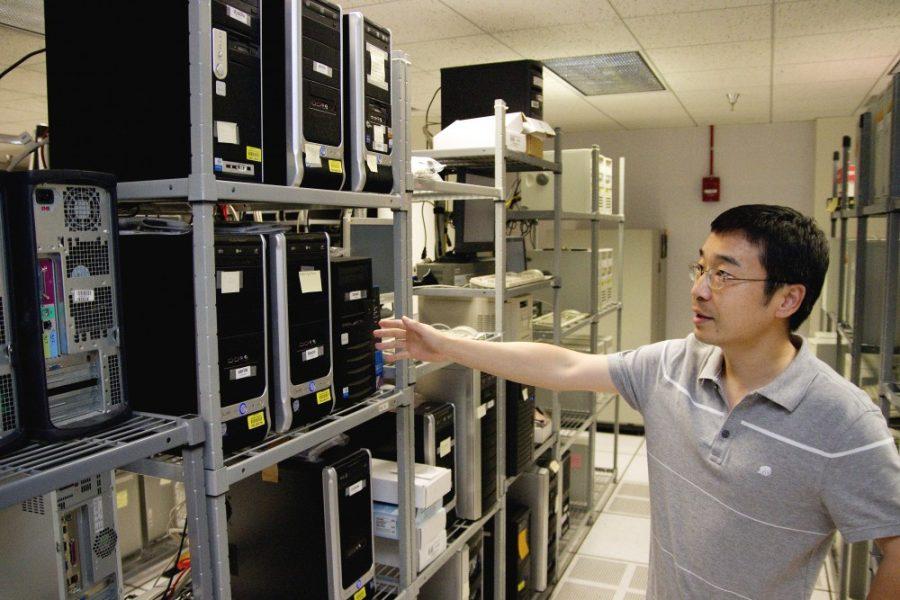Computer networks constantly waste money because of their constant energy consumption, even if they are idle. A UA professor’s “green” improvements may finally force them to absorb power proportionately.
Beichuan Zhang, an assistant professor of computer science, proposed turning network links on and off according to traffic levels. His team’s 10-page paper won him the Applied Networking Research Prize, given to two people on the planet this year.
“It’s an international award so no, I didn’t expect to win,” he said, grinning. “And then I got the email.”
It’s hard to measure where Zhang’s prize ranks among other awards won by the UA’s computer science faculty because it’s so unique, said Saumya Debray, interim department head of Computer Science. But if you’re one of only two people in the world to win one, it’s probably pretty special, he added.
People have been concerned about computing energy issues for years, but that’s only half the battle, Debray said.
“If someone doesn’t give you a way to solve the problem, what can you do?” Debray asked. “Dr. Zhang showed that by intelligently managing the infrastructure of the Internet, you can reduce the energy usage of the network. And that’s what’s cool.”
The award was sponsored by The Internet Society, which oversees major players and protocol makers in the Internet world. More than 20 teams competed for the prize.
Professors tend to work on long term theoretical problems while industries search for answers to issues faced today.
“The two communities are disconnected,” Zhang said.
The Internet Society is trying to bridge the gap between theory and practice by working with university researchers to produce a more effective Internet in the near future, Zhang said. Just because trash doesn’t fly out of your computer, doesn’t mean your network isn’t wasting energy, he added.
Internet service providers and data centers could save millions of dollars by implementing Zhang’s green networks. Eventually households could use the technology too, he said.
“The idea that you should adapt your power consumption based on your workload can be applied to anyone,” Zhang said. “The challenge is applying it to a specific network environment.”
Cheng Yi, a computer science graduate student and one of the paper’s authors, said being on the award-winning team will be beneficial to his career. He said the experience also also given him a lot of self-confidence. He said he hopes the theory is as successful in the lab as it was on paper and that the issues they’re addressing are relevant to all.
“The resources for generating energy may run out one day,” Yi said. “Everyone should care about energy saving.”
The whole point is to help people, reduce energy and save money, so success means seeing major industries using greener networks in the near future, Zhang said.
“We want to make an impact on the real world,” he said. “The paper is just the first step.”









